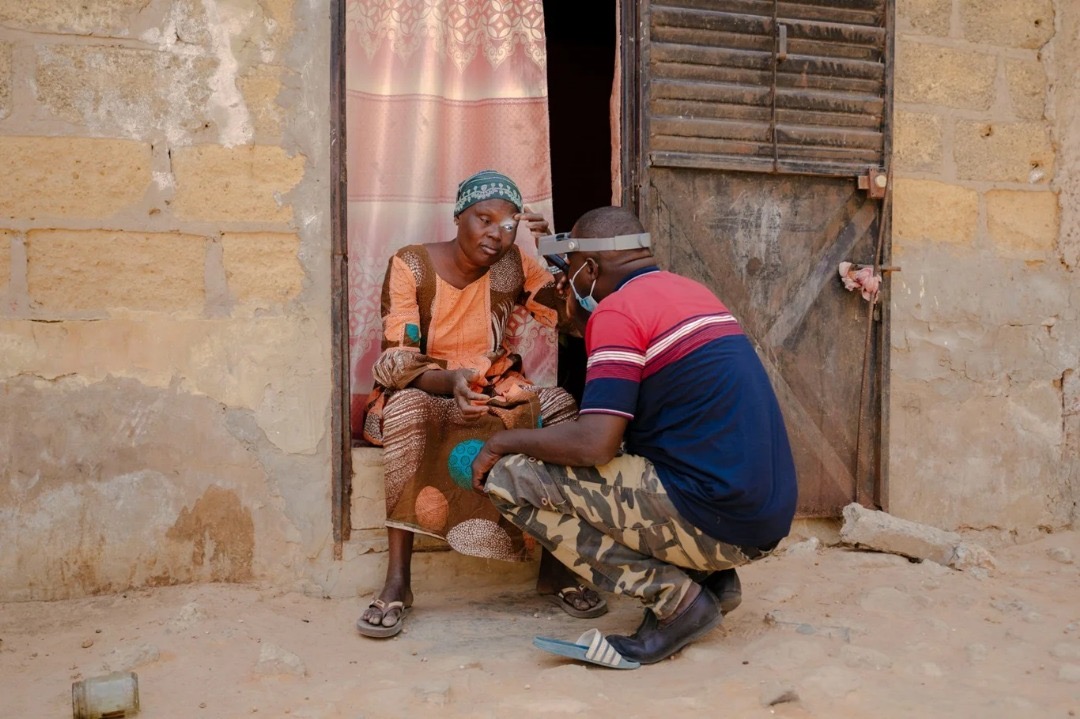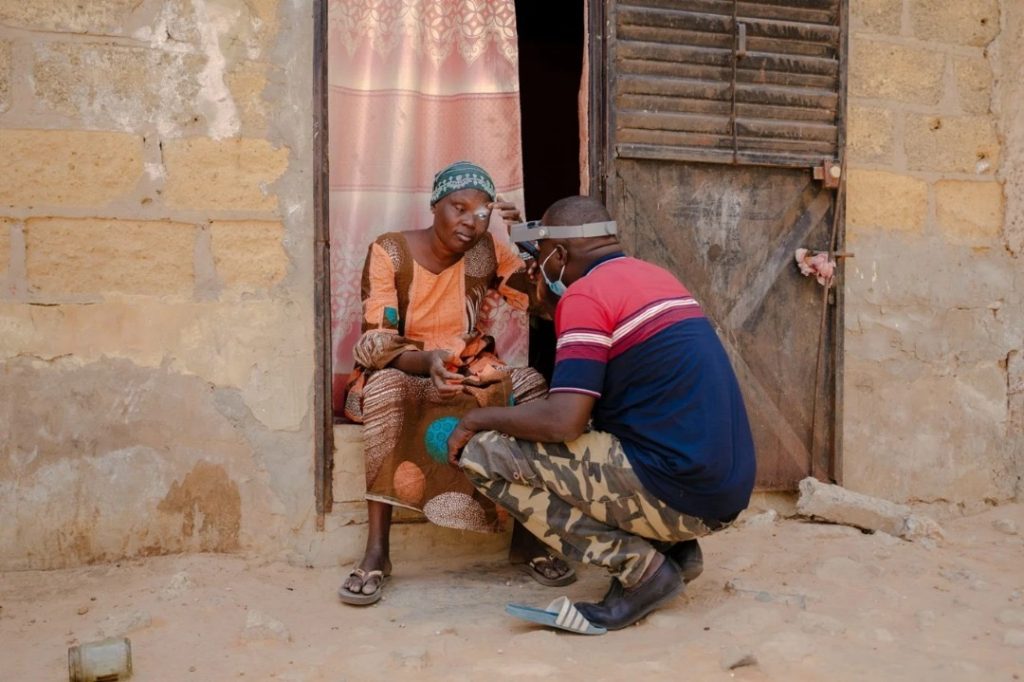
Source: Lara Adejoro

Aminata Samb, a patient in Senegal who received trachoma surgery supported by Sightsavers’ Accelerate programme, is checked by a surgeon in front of her house in February 2025. Photo credits: Sightsavers / Carmen Abd Ali
Senegal has been officially validated by the World Health Organization (WHO) as having eliminated trachoma as a public health problem, becoming the ninth country in Africa and the 25th globally to reach this significant milestone in disease elimination.
Trachoma is a neglected tropical disease (NTD) and a leading cause of preventable blindness worldwide. It is caused by the bacterium Chlamydia trachomatis and primarily affects people living in poor, overcrowded conditions with limited access to clean water and sanitation. The disease is transmitted through contaminated surfaces, direct contact with eye or nose discharge from an infected person, and by flies.
According to the WHO, trachoma has plagued Senegalese communities since the early 1900s. It was confirmed as a major cause of blindness in surveys conducted during the 1980s and 1990s. In 1998, Senegal joined the WHO-led Global Alliance for the Elimination of Trachoma and began a national mapping of the disease. By 2017, the country had completed full disease mapping with support from global initiatives such as the Global Trachoma Mapping Project and Tropical Data.
The WHO Director-General, Dr. Tedros Adhanom Ghebreyesus, lauded Senegal’s achievement:
“This milestone is yet another sign of the remarkable progress being made against neglected tropical diseases globally, and offers hope to other countries still working to eliminate trachoma.”
Senegal’s success story is largely attributed to the effective implementation of the WHO-recommended SAFE strategy, which includes:
Over 2.8 million people in 24 districts received these interventions. Public awareness campaigns were launched to promote hygiene and sanitation, while local and national health systems integrated trachoma control into their eye care programs.
Despite being a localized disease, trachoma continues to affect over 100 million people in 32 countries, with Africa bearing 90% of the global burden. Senegal’s elimination effort is part of a broader African movement against NTDs. The WHO reports that the number of people requiring antibiotic treatment for trachoma in the African Region dropped from 189 million in 2014 to 93 million in 2024—a 51% reduction.
Countries like Ghana, Gambia, Morocco, and Malawi have also achieved trachoma elimination in recent years, signaling progress toward the WHO’s goal of eliminating trachoma globally by 2030.
Senegal’s Minister of Health and Social Action, Dr. Ibrahima Sy, remarked:
“Today we celebrate our victory against trachoma, 21 years after the one against Guinea worm disease. This milestone reminds us that our overarching goal remains a Senegal free from neglected tropical diseases.”
WHO officials emphasized that eliminating trachoma doesn’t end the work. Ongoing monitoring, community surveillance, and water and sanitation programs must continue to prevent a resurgence of the disease.
Dr. Jean-Marie Vianny Yameogo, WHO Representative in Senegal, praised the country’s dedication:
“Trachoma has cast a shadow over communities in Senegal for more than a century. This long-awaited validation is a powerful tribute to the tireless dedication of health workers, government leaders, and partners who never gave up.”
Senegal joins a prestigious group of countries that have eliminated not just trachoma, but other neglected tropical diseases as well. In 2004, it was validated free of dracunculiasis (Guinea worm disease)—another major public health victory.
Senegal’s journey serves as a model for other countries battling neglected tropical diseases. Through strategic planning, global partnerships, and sustained commitment, public health challenges once thought insurmountable are being conquered.
As WHO continues to support health authorities in maintaining these gains, the global health community watches Senegal with admiration and hope—proof that elimination is achievable, even against the odds.